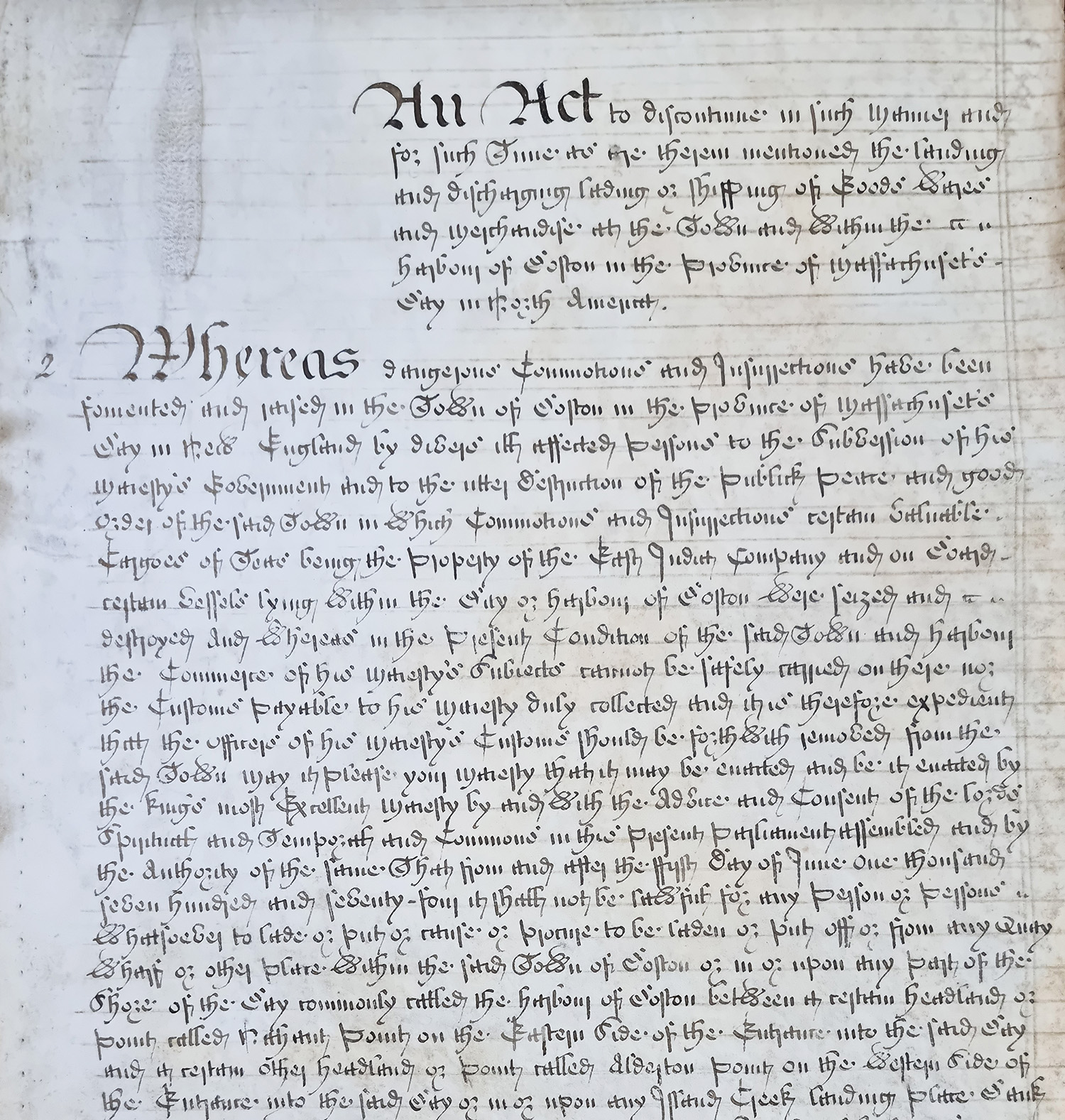
Extract from Boston Port Act, 1774 (14 George III, c19) Catalogue ref: C65/56
The Coercive Acts, which became known as the Intolerable Acts to the colonists, were passed in 1774. According to the Boston Port Act, the British Parliament closed the port of Boston until the colonists compensated the East India Company for the tea destroyed at the Boston Tea Party. These also included the Massachusetts Government Act which replaced elected local government in the colony of Massachusetts with direct rule by British Crown. The powers of the military governor, Thomas Gage were also increased. British troops could now be quartered in any occupied dwelling.
Transcript
An Act to discontinue, in such manner, and for such time as are therein mentioned, the landing and discharging, lading [loading] or shipping, of goods, wares, and merchandise, at the town, and within the harbour, of Boston, in the province of Massachusett’s Bay, in North America.
WHEREAS dangerous commotions [disturbances] and insurrections have been fomented [cause trouble to develop] and raised in the town of Boston, in the province of Massachusett’s Bay, in New England, by divers ill-affected persons, to the subversion of his Majesty’s government, and to the utter destruction of the publick [public] peace, and good order of the said town; in which commotions and insurrections certain valuable cargoes of teas, being the property of the East India Company, and on board certain vessels lying within the bay or harbour of Boston, were seized and destroyed: And whereas, in the present condition of the said town and harbour, the commerce of his Majesty’s subjects cannot be safely carried on there, nor the customs payable to his Majesty duly collected; and it is therefore expedient [necessary] that the officers of his Majesty’s customs should be forthwith removed from the said town: May it please your Majesty that it may be enacted; and be it enacted by the King’s most excellent majesty, by and with the advice and consent of the lords spiritual and temporal, and commons, in this present parliament assembled, and by the authority of the same, That from and after the first day of June, one thousand seven hundred and seventy-four, it shall not be lawful for any person or persons whatsoever to lade [load cargo] put, or cause or procure to be laden or put, off or from any quay, wharf, or other place, within the said town of Boston, or in or upon any part of the shore of the bay, commonly called The Harbour of Boston, between a certain headland or point called Nahant Point, on the eastern side of the entrance into the said bay, and a certain other headland or point called Alderton Point, on the western side of the entrance into the said bay…
- Why did the British pass the Boston Port Act?
- What is the tone and attitude inferred in this extract from the Act?
- How was trade and commerce in Boston affected by this law?
- How would this Act have affected the people of Boston and other colonists?
- Find out more about the terms of other Coercive Acts and their impact.
The Coercive Acts became known as the Intolerable Acts to the colonists.
- Explain the difference between the words ‘Coercive’ and ‘Intolerable’.
- What does the different labelling for the same laws infer about the colonial relationship?
- Explain how the Thirteen Colonies responded to the Coercive Acts.
